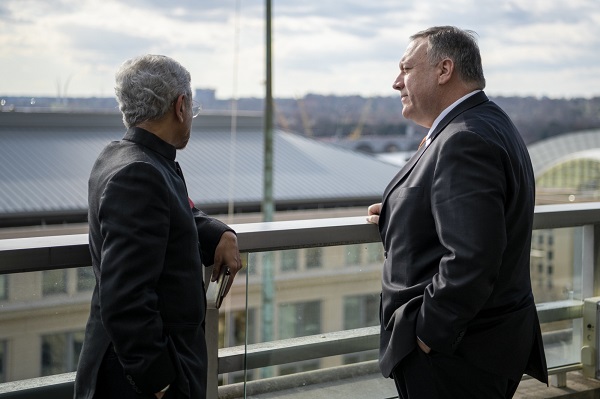
New York, The US does not see its relations with India as one where it can give ultimatums, according to a senior State Department official, who pointed out that India is a democracy where policies go through a due process.
Asked by a reporter if the US had sought assurances from India on restoring normalcy in Kashmir or given an ultimatum, the official said: “This is not a relationship where we deal in ultimatums. Again, I think this is a country, a democracy where these policies are being voted on, they’re being debated, they’re being reviewed by a judiciary, and so I would not use that terminology.
“We recognize and, frankly, appreciate that India is a vibrant democracy, as are we.”
The official held a series of media briefings on Wednesday and Thursday following the 2+2 Strategic Dialogue of India’s External Affairs Minister S. Jaishankar and Defence Minister Rajnath Singh and US Secretary of State Mike Pompeo and Defence Secretary Mark Esper.
The official, however, said: “We have discussed our concern over what the roadmap is in Kashmir to a return to economic and political normalcy, and what has concerned us about the actions in Kashmir are the prolonged detentions of political leaders as well as other residents of the valley, in addition to the restrictions that continue to exist on cell phone coverage and internet.”
The US would welcome the release of those detained in Kashmir and the restoration of communication and normal economic activity.
The official’s statement about not dealing in ultimatums is a strong reflection of US recognition of India as an equal – which is often lost the media and some opinion makers who deal in stereotypes about the world’s largest democracy, the nation with the world’s second most populous country and which has a $3-trillion economy.
Asked if the Citizenship Amendment Act (CAA) was discussed during the 2+2 meeting, the official said: “We have regular conversation with the Indians about a full range of issues, to include issues affecting human rights and religious freedom.”
But the official added that on the CAA, “we are seeing the active political debate, the discussions in parliament, the protests by people who are espousing their views on that law, and we’re also fully aware that there is a judicial process that’s underway. And we respect India’s democratic institutions and India’s democratic practices, and we’ll continue to observe it”.







